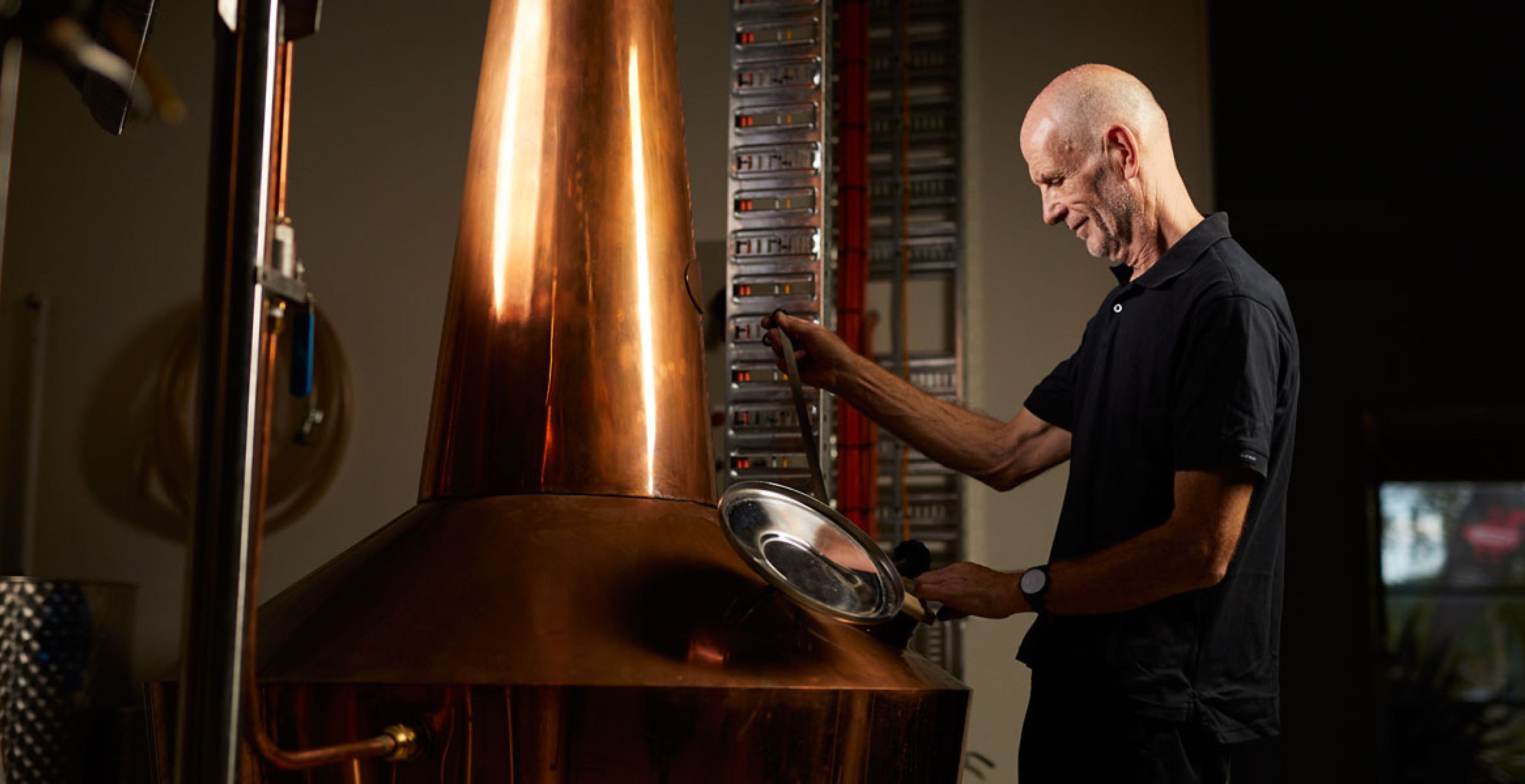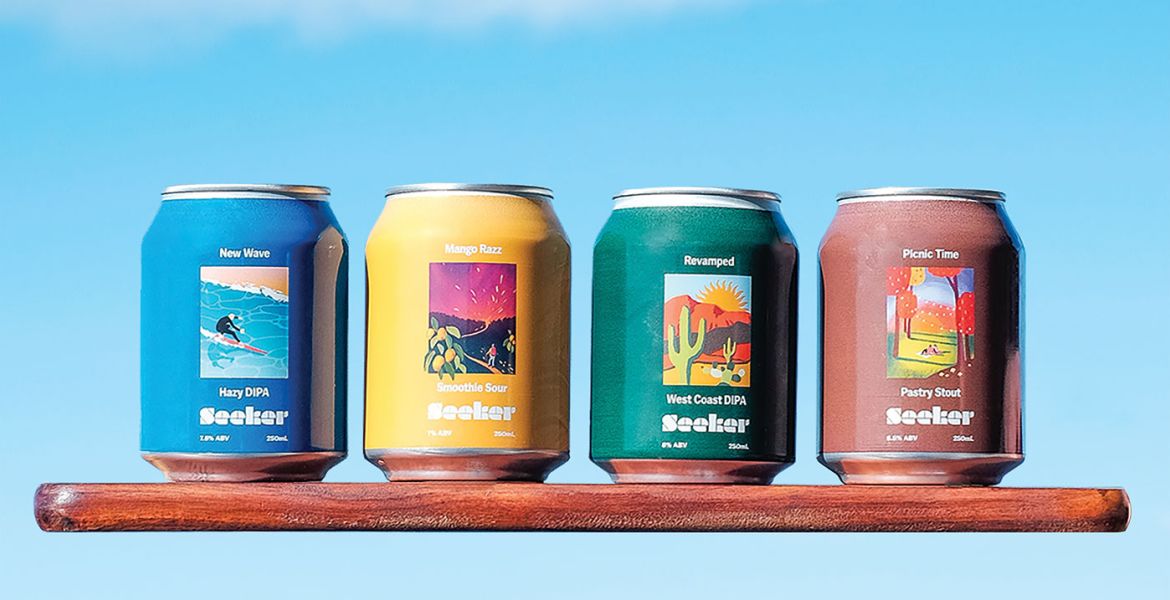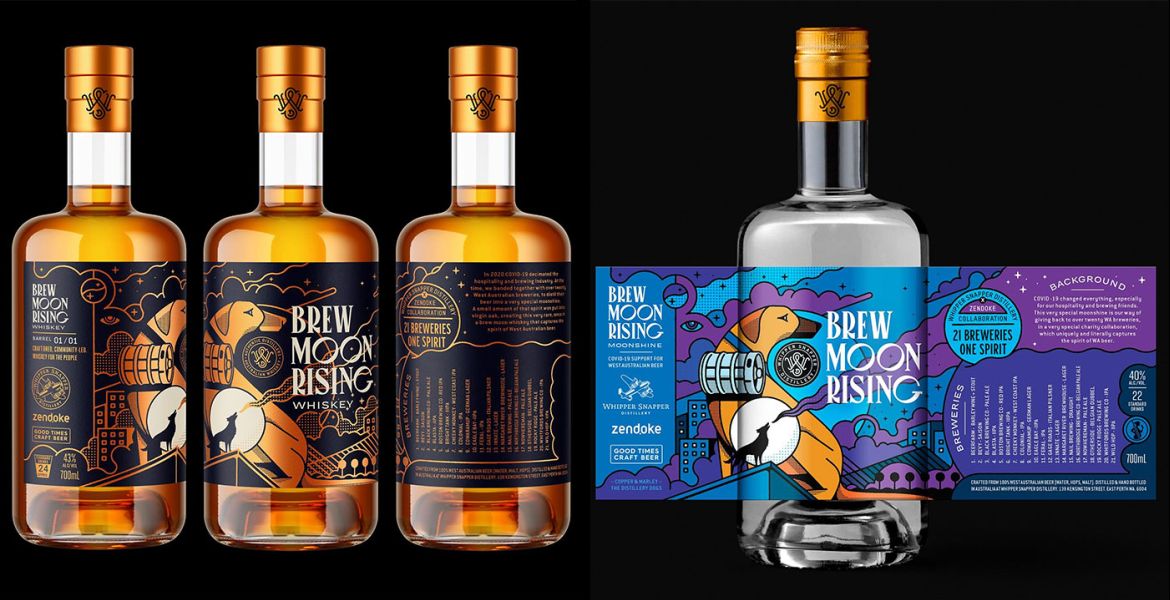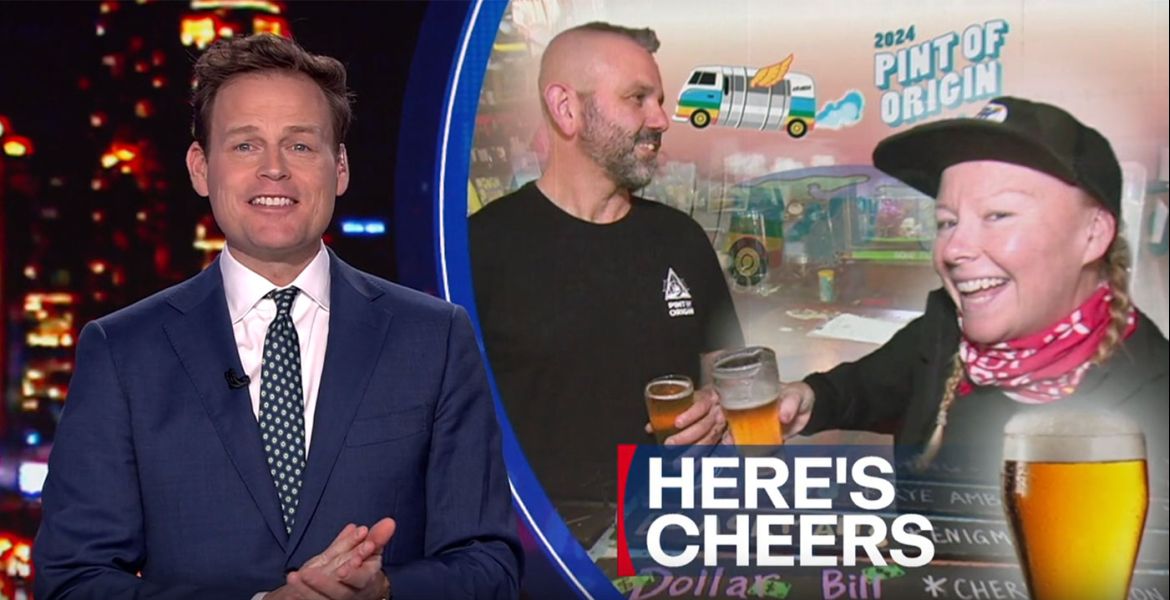It may seem like the distant past for some, but it wasn’t too long ago that the Australian beer and spirits industries were rather homogenised affairs. Local producers were scarce and the determining factors behind what they offered drinkers were typically price and alcohol percentage.
Granted, even today those two things still go a long way towards defining the market, yet drinkers also have more choice available than ever before. The rise of both small breweries and distilleries across the country has helped bring flavour – not to mention the provenance and process by which it is created – to the forefront of many drinkers' minds.
Craft spirits and beer each have their own rapidly expanding industries and there is a busy rate of exchange between the two when it comes to barrels. Beyond that, there is also a growing number of Australian brewers who have turned towards distilling and are bridging the divide between the two.
Newtown’s Young Henrys has been distilling since 2014, kickstarting the process with the release of their regularly released Noble Cut gin – featuring hops – to the moonshines that follow the brewery's well established tradition of collaboration.
Loch Brewery and Distillery, in Victoria, has taken a rather different approach to most brewers, with owners Craig Johnson and Mel Davies’ love for brewing having grown out of their passion for whisky. Today, you can line up tasting paddles of their English style ales alongside one featuring their two gins and a gin liqueur, while summer will see the release of the first of three whiskies – each created from the wort of their core range beers.
In May, we wrote about Boatrocker’s transformation into Boatrocker Brewery and Distillery after merging with the Perth distillery Hippocampus, while on the East Coast of Tasmania, IronHouse has added both wine and a range of gins to its offering in recent years and Collingwood's The Craft & Co offers both gin and the tools with which to distil.
These brewers-turned-distillers are part of a wider trend where modern spirits are just as highly regarded as craft beer for innovative flavour profiles and boundary-pushing styles.
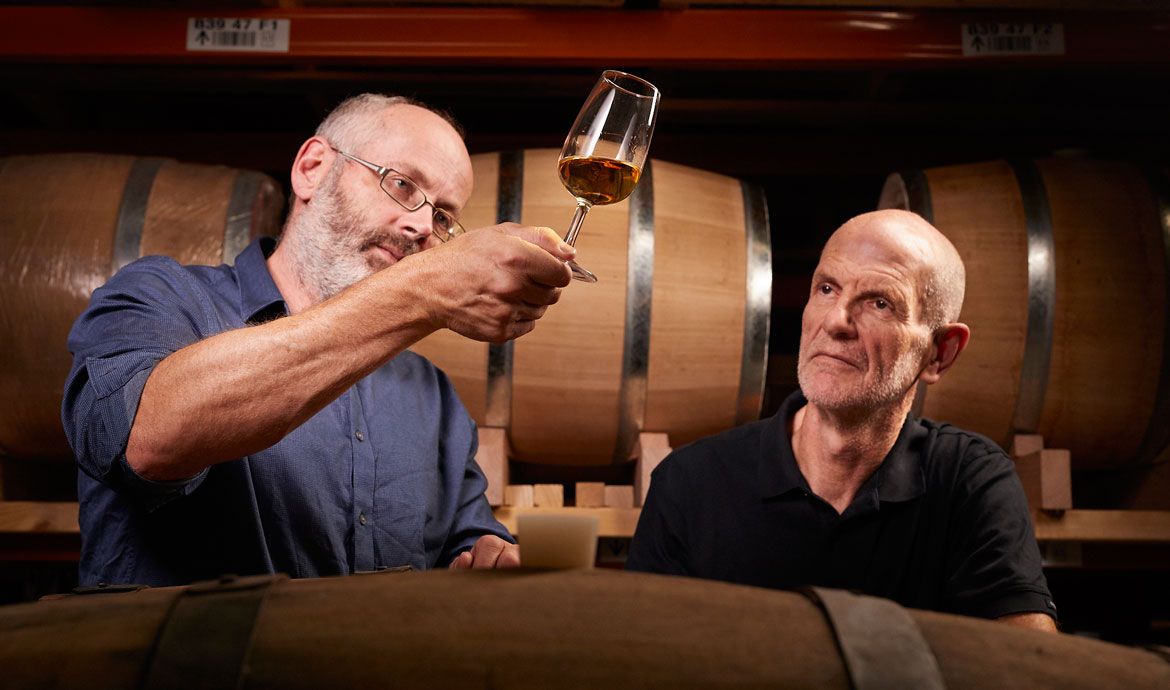
Chris Pratt (pictured above right with Scott Wilson-Browne) believes the rise in both small scale breweries and distilleries shows how people are becoming more discerning in their drinking. Indeed, in his case, it was a devotion to beer, whisky and gin that led him to start Kilderkin Distillery with Scott Wilson-Browne of Red Duck Brewery.
“Like beer, whisky starts to shift from an interest in drinking it to an interest in actually tasting it,” says Chris.
Like many new devotees to Australian craft beer, Chris started spending as much time as possible visiting as many local breweries as he could. It was an odyssey that eventually led him to Red Duck in Ballarat and then into helping Scott during beer festivals and events. On these occasions, despite spending most of their time surrounded by beer, their conversations tended to drift towards the idea of starting a distillery.
“We can track some details back but what we can’t work out is how we started talking about the idea,” he says. “What I do remember is one day sitting down and chatting to Scott and just going, ‘Are we going to do this or not?’”
The answer was yes and, in March of this year, Ballarat’s first distillery in more than 80 years launched with two gins – “a Scoundrel” and “the Larrikin”. The former is a fairly classic London dry gin, while the latter is a modern take on the spirit, featuring lemon myrtle and a swathe of other native Australian botanicals.
Chris and Scott have also released a barrel aged version of a Scoundrel, though gin isn’t the only spirit Kilderkin has biding time inside barrels. The distillery gets its name from kilderkin barrels which hold (roughly) 82 litres, and it's these in which Chris and Scott are patiently waiting for their whisky to develop.
Though the relatively small barrel size speeds up the process, in contrast to using a larger barrel – one of Loch's whiskies will launch after the other two due to being aged in a larger barrel, for example – Ballarat’s cool climate also results in a slow and steady maturation process. As such, Kilderkin's first batch of whisky isn't likely to see the light of day until 2019.
While whisky’s slower timeline compared to beer may be daunting for some brewers, it hasn’t stopped others showing the level of patience required. Lovedale Brewery in the Hunter Valley added "and Distllery" to its name in 2015 and hopes to have its first whisky out towards the end of the year.
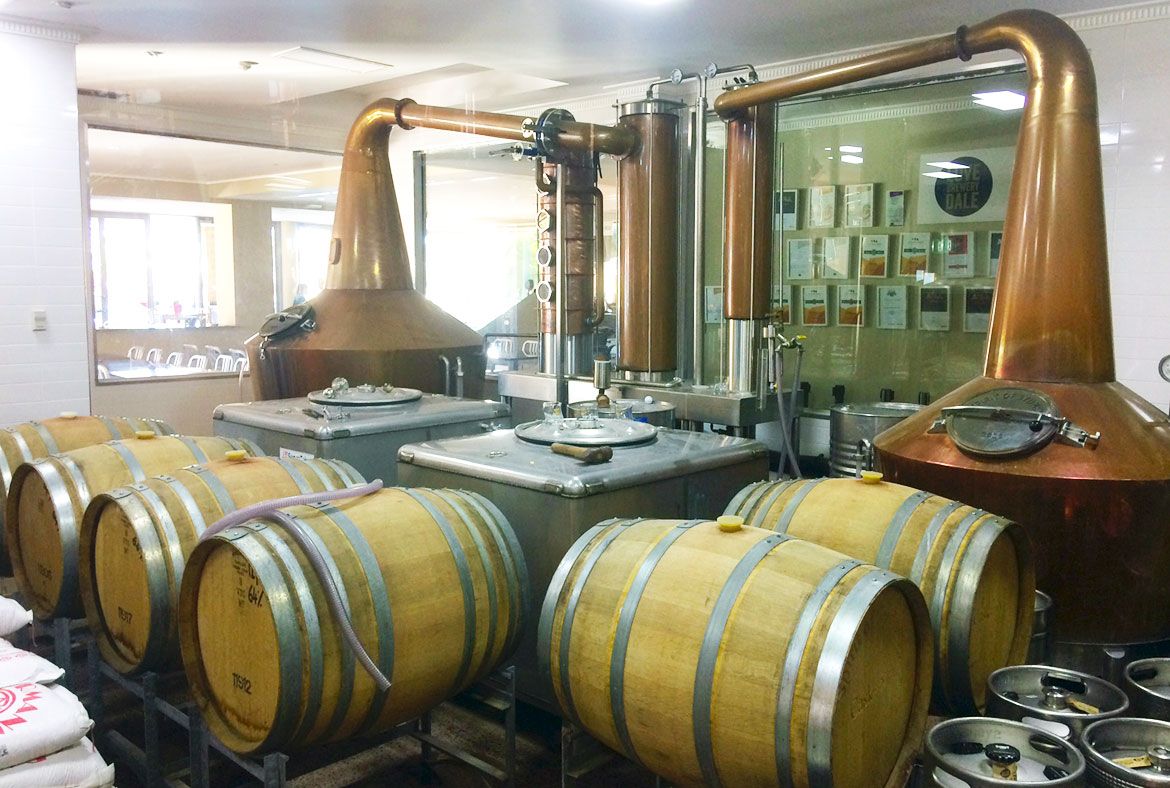
Like Kilderkin, Lovedale’s distilling arm (pictured above) was born out of a passionate owner’s love for beer’s malted sibling. Indeed, due to the small size of their operation, Zach Granger says they’ve chosen to focus on just the one spirit for now.
“We could have started with gin or vodka but the concern was that if we started with a clear spirit we’d get lost in it,” he says.
“We want whisky to be our main spirit, so at this point we are getting as much made as possible to get us ahead.”
With the Lovedale operation keeping one foot in brewing and the other in distilling, Zach is well placed to understand the challenges shared by both industries.
“I think the market [for craft spirits] could get flooded just like with craft beer where the consumer gets a bit overwhelmed,” he says. “So we are going to be trying to do some different things, with lots of experimentation.”
And innovation is an area in which Zach believes distilleries connected to a brewery have an advantage: at Loch, they are already creating boilermakers that blend their beers and spirits as one.
“Every barrel is slightly different so there might be a lot of single barrel releases to follow,” says Zach. “We can make a wash from a stout and then the whisky will come out a little different and create a differently flavoured whisky.”
As Australian tastes continue to evolve, Chris believes small operators will be best able to adapt. And he's particularly encouraged by the younger generation of drinkers who seem more interested than ever in pursuing flavour – no matter what their choice of drink is.
“There has been a shift towards looking in more detail at what people are going to drink and pay for," he says. "There’s no doubt about that.”



